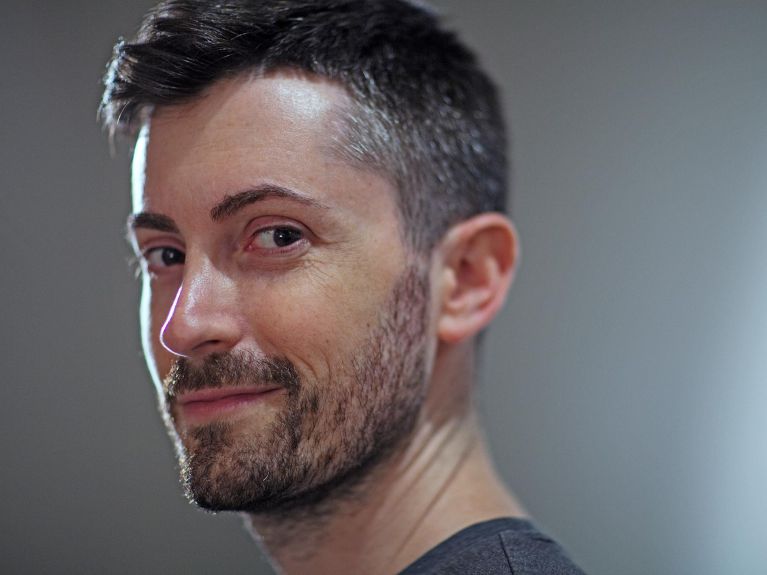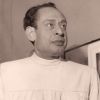Outstanding storyteller
Writer Ron Segal has found a moving narrative form for remembering the Holocaust. And based on it the animated film “Adam” has now gone into production.

Adam Schumacher wants to recall the past once more. At 90, the successful writer and Holocaust survivor wants to tell the story of his life and love to his deceased wife, who played the harp in the concentration camp. But Adam has dementia, and his memory is patchy. Telling his story, he frantically fills the ever larger gaps in his mind with foreign and invented memories.
“A Holocaust survivor who suffers from Alzheimer’s – can we believe him? Are we allowed to? Do we have to? How does that work? This memory is sacred. But what do we do when sickness leads to it being forgotten?” Adam is a fictional character created by writer Ron Segal. His 2014 debut novel “Jeder Tag wie heute” (Every day like today) poses many questions, which also provide fascinating film material. Indeed, Segal has now written the script for the animated film “Adam” with film funding from the German Federal Government Commissioner for Culture and the Media.
We must reinvent this story to retain the memory.
How can we retain memory?
The story is written from the perspective of the grandchildren of those who were persecuted during and survived the Holocaust. In literary terms, Ron Segal addresses the difficulties of the third generation, which has no own memory of the great catastrophe, but still has to find a way to deal with it. “I always had the feeling that everything I should know about the topic had already been thought or said before me and I should just learn it off by heart,” says Segal. Yet he sought his own story. “The story of the sick man trying to tell people his patchy memories is also what we in the third generation are trying to do, namely reinvent this story to retain the memory.”
A writer by chance
Ron Segal was born in Israel in 1980 and studied at the Sam Spiegel Film and Television School in Jerusalem. But you are only a filmmaker if you have made a long film, he says, smiling – and it’ll be a couple of years before “Adam” is finished. “I originally wanted to tell Adam’s story as a screenplay straight off, but I was describing feelings and thoughts and realised I was writing a novel.” And that was a stroke of luck, for Ron Segal discovered he was a writer.
Stayed in Berlin for love
A first version of the script is now complete. The author is working on realising it with the production company MovieBrats Pictures based in Berlin. That is where Segal lives today with his German wife and their child. It is the home city of his grandmother, who fled the Nazi regime to Israel in 1938. His Jewish great-grandmother and his great uncle who lived in Goltzstrasse in Berlin’s Schöneberg district did not survive – they were deported to Riga and murdered.
Segal first came to Berlin in 2009 with a DAAD scholarship to conduct research among the 52,000 interviews on the Holocaust in the USC Shoah Foundation’s Visual History Archive at Freie Universität Berlin. He was looking for storytellers, and found more than that. “I stayed for love – the love of this city,” says Ron Segal. Today Berlin means for him: open access to Europe and a gateway to the world.
Important confrontation with the Holocaust
In Germany, Ron Segal writes in Hebrew. His second novel, a black comedy about the repercussions of the Six-Day War in Israel from today’s perspective, is scheduled to come out this spring in Israel and has already won an award there. “But before I was able to write that book, I first had to address the Holocaust and liberate this topic from my thoughts,” notes the Berliner from Israel. Now the film is in production. And Segal is still doing a book tour with “Jeder Tag wie heute” in Germany – also visiting schools, which for him personally is especially important. There he talks with young Germans from his generation about the challenge with memories of the Holocaust.
